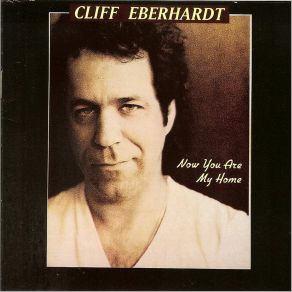Now You Are My Home
Download links and information about Now You Are My Home by Cliff Eberhardt. This album was released in 1993 and it belongs to World Music, Songwriter/Lyricist, Contemporary Folk genres. It contains 12 tracks with total duration of 43:16 minutes.

|
|
|---|---|
| Artist: | Cliff Eberhardt |
| Release date: | 1993 |
| Genre: | World Music, Songwriter/Lyricist, Contemporary Folk |
| Tracks: | 12 |
| Duration: | 43:16 |
| Buy it NOW at: | |
| Buy on iTunes $9.99 | |
| Buy on Amazon $9.49 | |
Tracks
[Edit]| No. | Title | Length |
|---|---|---|
| 1. | Ever Since I Lost Your Love (feat. Yes) | 3:40 |
| 2. | You Really Got a Hold On Me (feat. Yes) | 3:42 |
| 3. | Now You Are My Home (feat. Yes) | 4:15 |
| 4. | Not Alone In This World (feat. Yes) | 3:19 |
| 5. | Everytime I See Your Face (feat. Yes) | 3:54 |
| 6. | I'm Not Quite Over You (feat. Yes) | 3:06 |
| 7. | Baton Rouge (feat. Yes) | 4:04 |
| 8. | Now That You Are Mine (feat. Yes) | 2:36 |
| 9. | Motel Room Dreams (feat. Yes) | 4:31 |
| 10. | I Thought That You Should Know (feat. Yes) | 2:43 |
| 11. | One Or Two Things (feat. Yes) | 4:07 |
| 12. | Make Me Believe (feat. Yes) | 3:19 |
Details
[Edit]Cliff Eberhardt recorded his first cover song on his second album, cutting Smokey Robinson's "You Really Got a Hold on Me" with harmony vocals by John Gorka, Patty Larkin, and Judy Dunleavy. It was an appropriate choice for a songwriter so concerned with romantic obsession. The character depicted in his songs was a traveler (references to the road and motels abounded), who had been looking for love a long time: "I've been searching," was a phrase used in both "Now You Are My Home" and "Every Time I See Your Face." This person alternated between expressions of unabashed devotion ("Now You Are My Home," "Every Time I See Your Face," "Now That You Are Mine") and bitter recriminations about lost love ("Ever Since I Lost Your Love," "I'm Not Quite Over You," "Baton Rouge"). There were also a few variations. In "Not Alone in This World," a man with a new girlfriend can't help thinking about an old one, while "I Thought That You Should Know" and "One or Two Things (You Don' t Know)" find him tentatively proposing a relationship. Throughout, the singer wore all his emotions on his sleeve, whether love, anger, or regret: "I believe that nothing comes to those who hesitate," he declared, which gave his expression a raw immediacy. He backed up these explosions of feeling with his rough tenor on tracks less produced than those on his debut album and therefore more dominated by his guitar work and singing. At times, his song construction and performance transcended the material, especially on "Baton Rouge" (which someone in Nashville should get a hold of) and "Make Me Believe," turning them into powerful statements of feeling. But the album was uneven and repetitive, and Eberhardt's angst and fervor could be wearing.